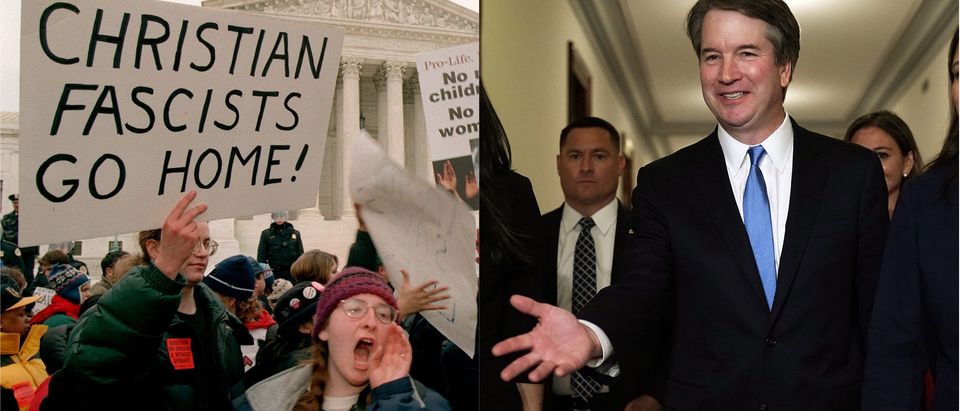I was recently asked to sign a three-page letter from a group of law professors to Senators Susan Collins and Lisa Murkowski “strongly urging” the senators to vote against Judge Brett Kavanaugh’s confirmation to the Supreme Court because Judge Kavanaugh would allegedly vote to overturn the Court’s 1973 decision in Roe v. Wade that there is a constitutional right to abortion.
The letter is addressed to Senators Collins and Murkowski because Republicans control the Senate by a razor-thin margin, and Collins and Murkowski are Republicans who, as the authors of the letter say, “have long-supported the right to choose.”
I didn’t sign the letter for a variety of reasons. I will mention the three most important: First, it is not as clear as the authors of the letter seem to think that Judge Kavanaugh would vote to overturn Roe. Indeed, the letter itself frequently equivocates about his position on the precedent, asserting, for example, that he “potentially” would provide the “critical fifth vote” for reversing Roe.
Second, if senators start voting against nominees on the basis of how the nominee might vote in a single case, no nominee would ever be confirmed because no one agrees with someone else about everything.
Third (and most importantly, as far as I’m concerned), it’s not at all clear that Roe shouldn’t be overruled.
Note that I didn’t say that Roe should be overruled. I simply said that it isn’t clear that it shouldn’t be.
To make the point another way, Roe is the sort of precedent that Justice Oliver Wendell Holmes Jr. famously called a “hard case.” This is because there is so much uncertainty about when life begins. In fact, in Roe itself, the Court expressly refused to “resolve the difficult question of when life begins,” a position to which the Court has adhered ever since.
The title of Harvard Law School Professor Laurence Tribe’s classic book on abortion, “Abortion: The Clash of Absolutes,” well describes the dilemma, given that abortion directly impacts two fundamental rights: life and liberty.
The law professors’ lengthy letter to Senators Collins and Murkowski says nothing about the life of the unborn child.
If the unborn child is a “life,” then there cannot be a constitutional right to an abortion because — to invoke the political theory on which the Constitution is based—“the fundamental law of nature” is the preservation of life, and “when all cannot be preserved, the safety of the innocent is to be preferred.” There certainly can be no more innocent a life than that of an unborn child.
But if the unborn child is not a “life,” then there must be a constitutional right to an abortion because a woman’s right to “liberty” — to freely direct the course of her life — surely includes the childbearing decision.
Of course, what this means for Judge Kavanaugh is that, if he is confirmed to the nation’s highest court, and a case involving abortion is heard by the Court, he will need to answer the question that Roe expressly refused to answer — namely, the question of when life begins.
Obviously, this is no easy task. But it seems to me that Judge Kavanaugh is smart enough, experienced enough and endowed with the requisite integrity to consider the question with an open mind. He has pledged to do so. Senators Collins and Murkowski should take him at his word and vote to confirm him to the Supreme Court. The rest of the senators should vote to confirm him, too.
Scott Douglas Gerber is Visiting Professor of Political Theory at Brown University and Professor of Law at Ohio Northern University. His ninth book, “The Art of the Law: A Novel,” will be published in October.
The views and opinions expressed in this commentary are those of the author and do not reflect the official position of The Daily Caller.


